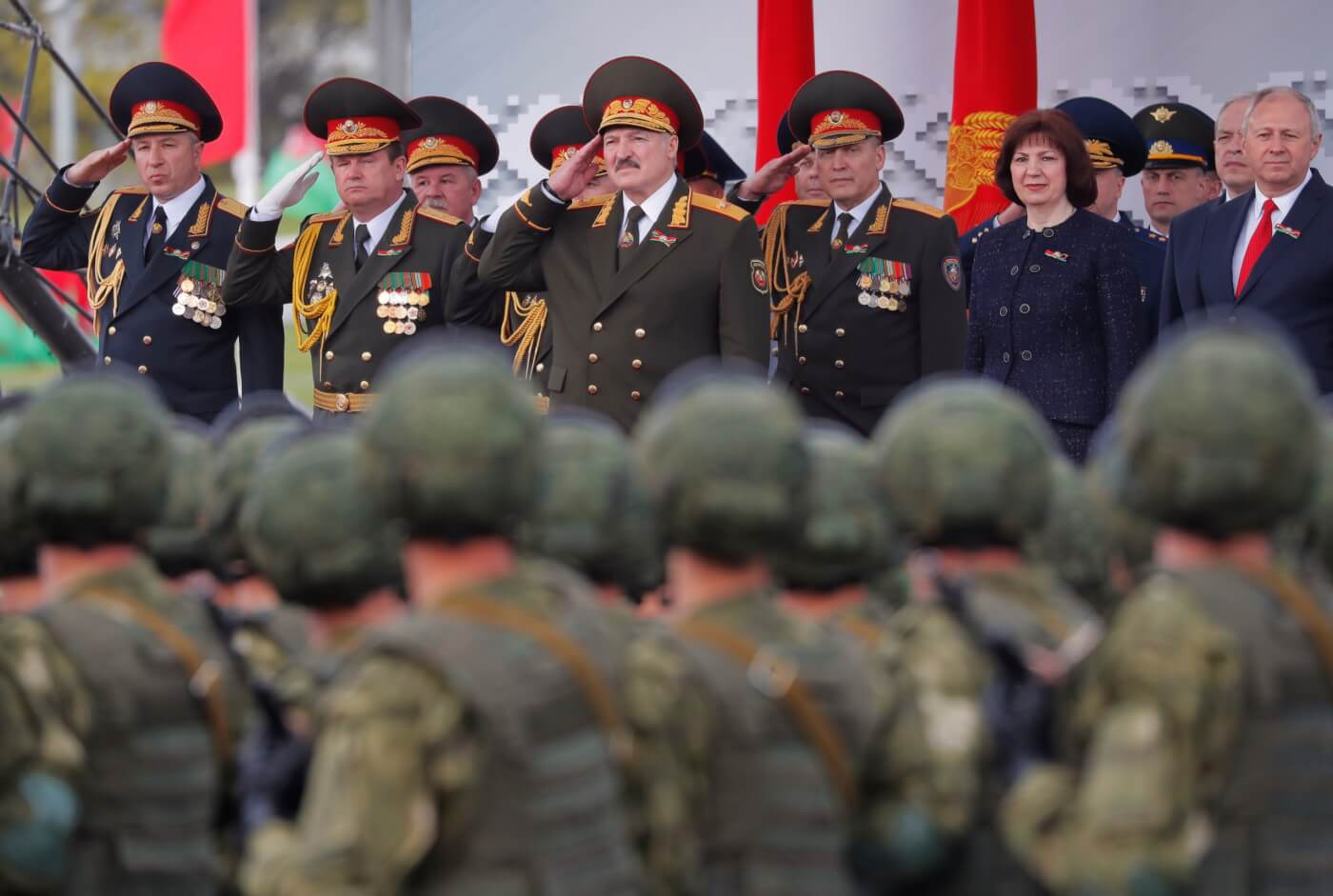Since the World Health Organisation declared Covid-19 a pandemic, few countries have chosen to ignore social distancing recommendations. But, even among those states which have, the Belarusian official response to its epidemic remains unique.
While Europe’s last dictator, President Alexander Lukashenko, has insisted that vodka, ice hockey, sauna and tractors are protecting Belarusians from coronavirus, local activists have been forced to play an important role in crowdfunding the country’s response to the disease and making up for shortages at local hospitals.
A human rights activist and volunteer worker, Andrej Stryzhak, co-founded the #bycovid19 group to crowdfund, acquire and deliver equipment and protective clothing to medics and other frontline personnel, one of many local initiatives by NGOs and businesses.
“Our goal is to make sure this system doesn’t collapse,” Stryzhak said. “In many places, for instance in Vitebsk [a city in north-east Belarus], we see that there’s a very difficult situation, a critical situation. There are a lot of sick people, and a lot of medics are sick.”
With material shortages worsening, and the black market charging as much as £12 for a single mask, Stryzhak, alongside a team of dozens of volunteers and NGOs, raised more than £100,000 and distributed 27,000 respirators, as well as protective clothing and medical equipment.
Lukashenko, meanwhile, has consistently downplayed the pandemic in public and called concerns over the virus a “psychosis”. He has appeared at Orthodox Easter services and Belarus is the only country in Europe that have continued holding football matches during the crisis.
In late April, Lukashenko declared:
“No one in the country will die from coronavirus.”
Lukashenko also decided to go ahead with Belarus’s Victory Day military parade while Russian President Vladimir Putin cancelled Moscow’s. Thousands of people, including elderly veterans of the second world war, turned out for the parade and images showed crowds packed on to parade bleachers as the country’s leader boasted of holding the only parade in the former Soviet Union to mark the defeat of Nazi Germany.
“In this insane, disoriented world, there will be people who condemn us for the time and place of this sacred act,” Lukashenko said. “Don’t rush to conclusions or condemn us, descendants of the victory of Belarusians. We couldn’t have acted differently. We had no other choice. And even if we had one, we would have done the same.”
The pandemic has driven something of a wedge between Russia and Belarus. The Kremlin has publicly worried that Belarus’s lax approach could “bring a sharp increase in the number of those infected” and this week Belarus revoked the accreditation of a Russian state television news crew after a report about rising coronavirus deaths in the country.
Belarus is ranked 153rd out of 180 countries in the RSF’s 2020 World Press Freedom Index and it’s not just Russian media that is facing challenges reporting from the country. Domestically, critical journalists and bloggers are constantly threatened and arrested and leading news sites are frequently blocked. Access to information is restricted as the state exercises total control over all TV channels.
A few independent media outlets exist but many are forced to base themselves abroad and the authorities continue to harass them, especially the Poland-based Belsat TV. One of Belsat’s correspondents, Mikhail Arshynski, was arrested on 7 May and since then, Belarusian authorities have arrested five journalists over their coverage of the country’s political opposition.
All the detained journalists had covered blogger and opposition presidential candidate Siarhei Tsikhanouski campaign events. Tsikhanouski traveled the country over the last month, filming videos about political issues that he uploaded to his YouTube channel, where he has more than 180,000 subscribers. The journalists were charged with “participating in an unauthorised demonstration” and sentenced each journalist to 10 days of administrative detention.
“Throwing journalists behind bars for covering an opposition candidate’s presidential campaign shows how scared Belarusian authorities are of any challenge to their rule,” said CPJ’s Europe and Central Asia program coordinator Gulnoza Said, in New York.
“Belarusian authorities should release the journalists, stop putting their lives in danger by jailing them amid the spread of coronavirus in the country, and allow them to report on the presidential campaign freely and safely.”
Sergey Satsuk, the editor of Yezhednevnik, an online newspaper that is well known for its investigative reporting on the country’s healthcare system, was arrested on 25 March and is facing up to ten years in prison on a corruption charge after criticising the president’s relaxed approach to the Covid-19 epidemic.
As of 18 May, Belarus had 30,572 confirmed cases and 171 deaths according to data from John Hopkins University.

